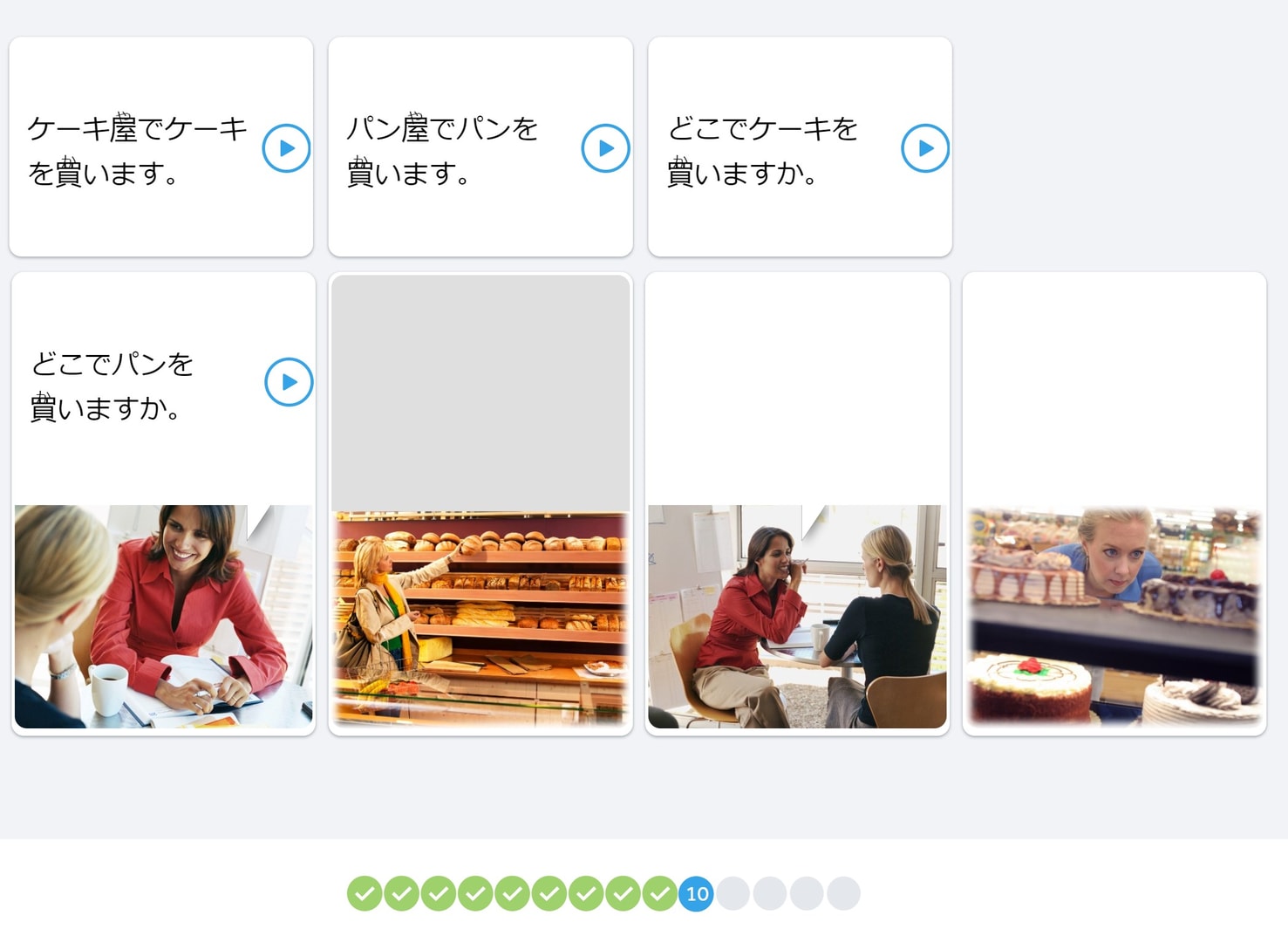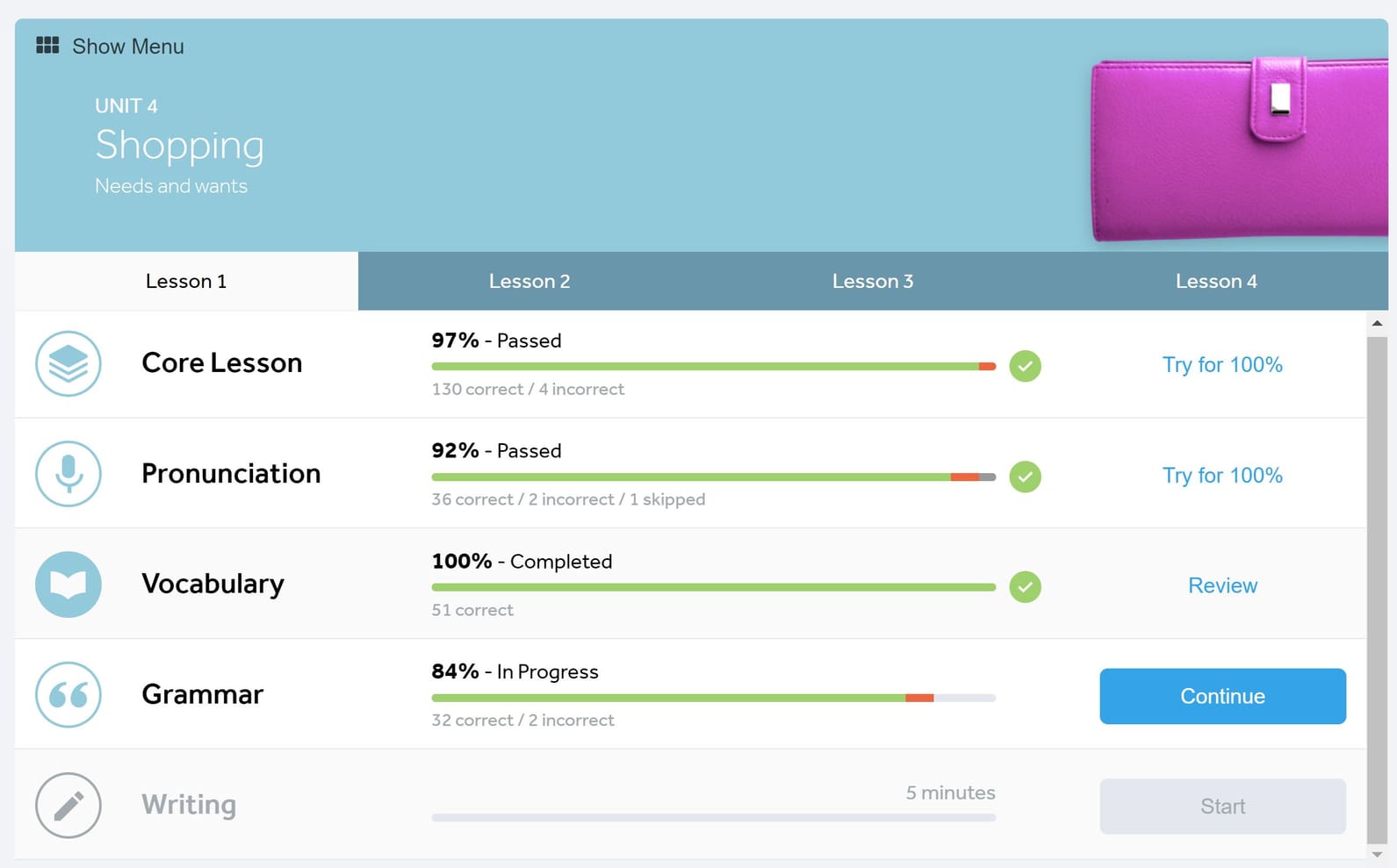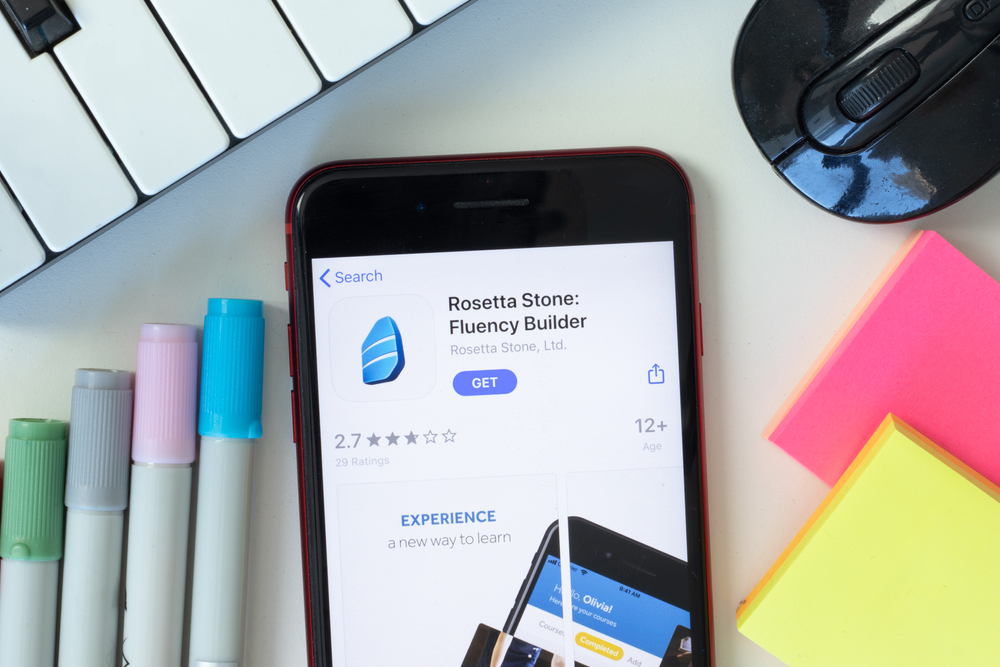Since I moved to Japan five years ago, my Japanese has been in decline. When I still lived in Germany, I took regular lessons. Mine wasn’t the most demanding school and I was never top of the class, but at least one night a week I was forced to say more than ‘excuse me’ and ‘thank you’ in Japanese. I expected my language skills to improve exponentially on their own after relocating here. Alas, they didn’t.
I am of the conservative mindset that everyone should be moderately proficient in the language of the country they live in, or at the very least try their best. Since I shy away from the commitment of joining another class, I set out on a journey: To find the best app or online resource to get me from “that’s yummy!” to talk-show-ready without leaving my couch.
The Classic: Rosetta Stone

Let’s start with the big one. Rosetta Stone, named after an ancient relic with multilingual writing on it, has been there since before the internet. The former CD-ROM software suite has progressed reasonably well into the online age but it is no longer the only game in town, which makes its steep prices and lack of stripped-down free versions seem either confidently classy or a bit behind the times. According to who you ask, Rosetta Stone either “remains the best premium software for building a foundation in a foreign language” (the UK’s PCMag) or is “the biggest scam ever!!!” (several semi-anonymous online commentators).
Rosetta Stone takes pride in its once unique approach to let you learn a language like a small child would: by repetition, imitation, variation — with no translation or explanation whatsoever. The exercises usually consist of visual clues accompanied by spoken or written text. You are asked to assign the correct words or phrases to the corresponding pictures, fill in gaps through multiple-choice options, or repeat or reply verbally to audio questions.

The voice recognition feature has good days and bad days. On the latter, I often find myself repeatedly shouting the simplest words at the screen in perfect pronunciation, but the software still won’t accept that I can say ‘ten’ in Japanese. On its too lenient days, it will award me a perfect green circle if what I said only has approximately the same length of what I was supposed to say — even when I know myself that I didn’t make sense in any language. On most days, however, voice recognition works surprisingly well and it does what it is supposed to do: It gets you talking.
Rosetta Stone runs on apps for the most common mobile operating systems as well as in web browsers. Some users report substantial issues with the mobile apps and so do I. Like others, I haven’t been able to log in on my Android phone. Then I learned that the app I installed is for corporate students only, and that the regular version is not compatible with my specific phone, which is why Google Play didn’t even show it to me.
On my Android tablet, however, everything runs perfectly. The tablet app might be the smoothest way to use Rosetta Stone if you don’t intend to stray from their script. If you want to use all the extra features like stories, additional audio content, or the possibility to customize your curriculum, the browser version is the best option.

I have to admit, I miss the kind of stories you can find in classic textbooks. Not that they ever were very exciting: “Today, Peter and Akiko are going to buy stamps at the post office.” Will they go for drinks afterward? Will they go straight to the chapter about writing and mailing postcards? There was some way to make each lesson a fun one.
There is no such thing in Rosetta Stone. No characters, no plot, no cultural background information, not even images that reflect the country of the language you are learning. When a lesson is about people having meals, you will see stock images of people of random ethnicities eating random dishes in random settings. This generic, no-nonsense approach to teaching can hamper motivation.
Rosetta Stone doesn’t go out of its way to make you come back every day. Occasionally it rewards you by unlocking achievements, but it doesn’t penalize you for taking a couple of days off. Or, in my case, a couple of years.
Now it can be said: This isn’t my first rodeo with Rosetta Stone. I joined for the first time when I had just moved to Japan. I felt then that it helped me enforce and practice what I already knew. It also taught me a few new tricks and a couple of new words. But then life happened, as it sometimes will, and I couldn’t make time for the service as frequently and as extensively anymore as I used to. So, when it was time to renew my pricy yearly subscription, I didn’t.
Back in the saddle, my feelings about Rosetta Stone haven’t changed: It is a great way to stay in touch with the language you are supposed to be studying and get new perspectives on concepts you might already know. For making significant progress, however, my quest to find the perfect self-study tool will go on.
Looking for more language learning fun? Check out these articles:
- Learning Japanese: Outdated Kanji that Are Still Fun to Use
- The (Almost) Complete Guide to Japanese Gestures, Body Language and Their Meanings
- 6 Unconventional Ways to Improve Your Japanese Language Skills
- Weekly Japanese Idiom: “Fuminfukyu” — Working Day and Night
- 14 Netflix Shows To Binge Watch (And Study Japanese With) Now









